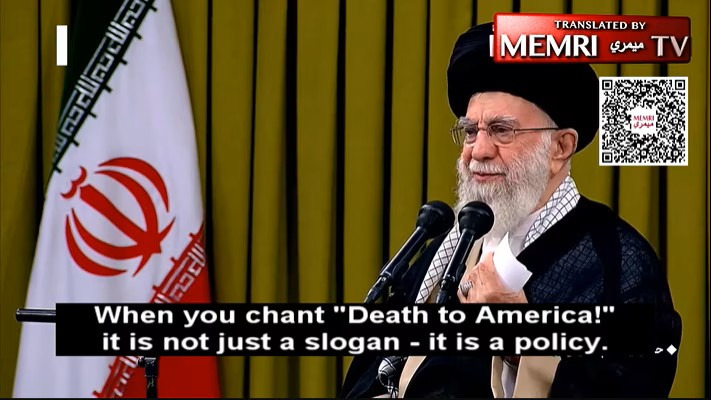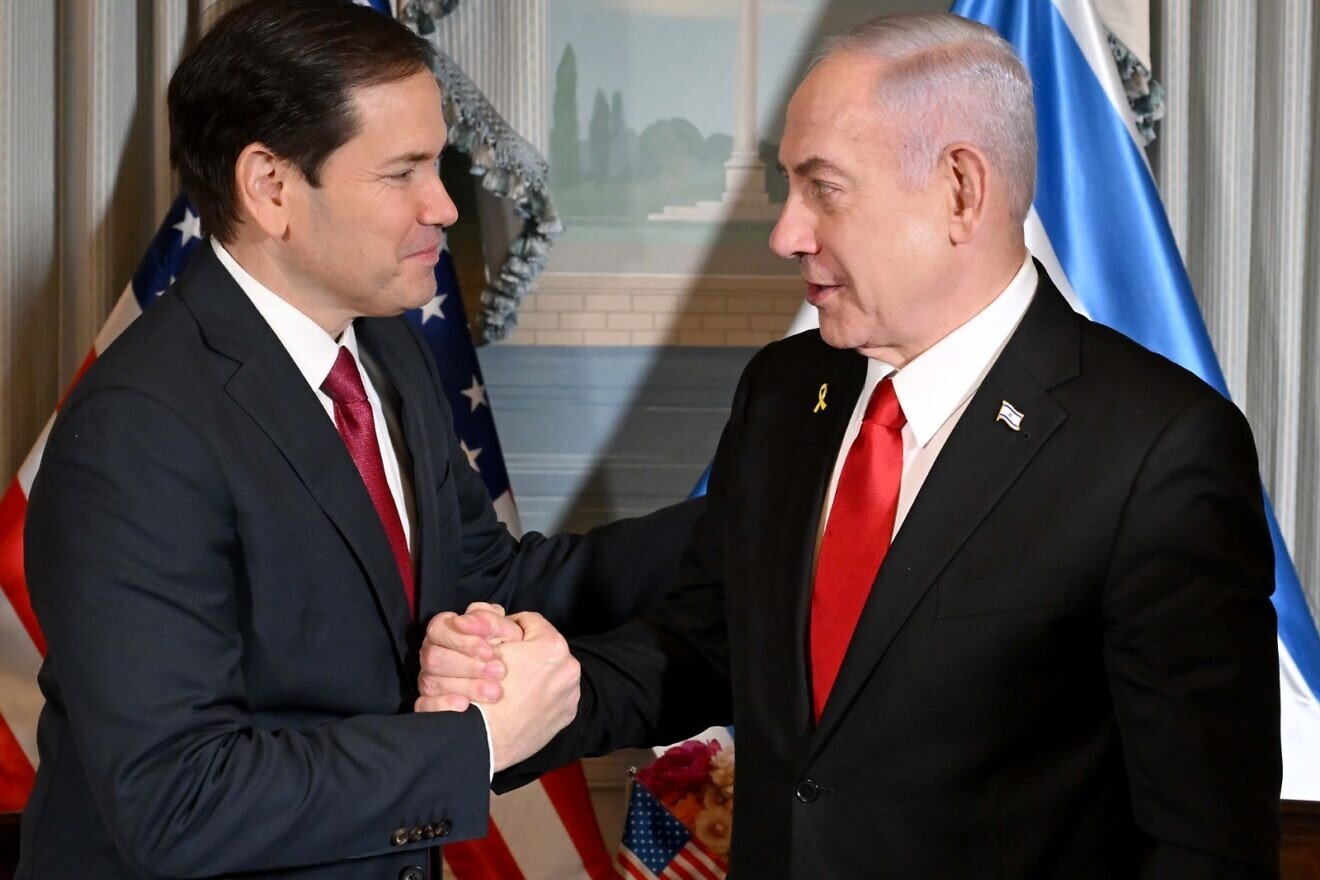by Nima Gholam Ali Pour
The one scenario that is completely unrealistic, and has never happened, is that unarmed Iranian civilians, without any military support, could overthrow a regime that can even bring in militias from Lebanon, Iraq and Yemen to crush an uprising.
A successful popular uprising without external support is not possible in Iran: The mullahs have repeatedly shown that they are willing to kill as many people as necessary to stay in power.
During the Twelve-Day War, when Iran's regime was forced to confront an armed adversary, the enforcers who usually beat and abuse unarmed Iranians went into hiding. Their commanders went into hiding. Supreme Leader Ayatollah Ali Khamenei went into hiding. This is what the beginning of regime change looks like.
The one scenario that is completely unrealistic, and has never happened, is that unarmed Iranian civilians, without any military support, could overthrow a regime that can even bring in militias from Lebanon, Iraq and Yemen to crush an uprising. When unarmed people confront armed forces, the armed forces win.... There is nothing wrong with overthrowing tyranny with the help of external support, especially when a tyrannical regime is spreading war and chaos throughout the region.
During the Twelve-Day War, Iran's regime came closer to collapse than ever before. What was missing was an active agent to carry out the regime change. Iran's ruling mullahs will never become pro-Western or peaceful.... Countries such as the United States and Israel have a crucial role to play in planning for a successful regime change and mobilizing countries that support such a goal....

The Twelve-Day War between Iran and Israel is a wake-up call for everyone who has finally had enough of the Iranian regime.
Until now, the Iranian opposition-in-exile and all those hoping for regime change have been waiting for some form of popular uprising from the Iranian people. Such waves of protests have taken place in past years, but each time, the mullahs' regime has become more adept at crushing these revolts, regardless of how much support they received from the international community.
There will be no regime change in Iran without direct external pressure, and the Israeli-American attack on the Iranian regime's structure demonstrated, perhaps for the first time, that this regime can fall.
The idea that unarmed Iranians should go up against the armed Basij militia or the Islamic Revolutionary Guard Corps (IRGC) was hopeless from the start. Those who imagine a repeat of Iran's 1979 revolution should remember that the monarchy was overthrown by popular protests because Shah Mohammad Reza Pahlavi was unwilling to order a massacre to stay in power. While the Shah's armed forces were used only against the population in extreme circumstances, the mullahs who rule the Islamic Republic of Iran have made it the norm to deploy various armed forces against their own people.
Unarmed Iranians can never overcome the regime's armed enforcers. This regime will not step down voluntarily. They have no respect for human life. A successful popular uprising without external support is not possible in Iran: The mullahs have repeatedly shown that they are willing to kill as many people as necessary to stay in power.
During the Twelve-Day War, when Iran's regime was forced to confront an armed adversary, the enforcers who usually beat and abuse unarmed Iranians went into hiding. Their commanders went into hiding. Supreme Leader Ayatollah Ali Khamenei went into hiding. This is what the beginning of regime change looks like.
There are also several other reasons why regime change did not occur in Iran. There were no ground forces to finish the job, either from the US, Israel, the Iranian opposition, or from separatist groups. Had the war continued longer and the regime's vulnerability been further exposed, there was a small possibility that parts of the regular Iranian army might have rebelled. Some parts of the Iranian opposition believe that one path to regime change is for segments of the regime's security apparatus, outside the IRGC and Basij, to lose confidence in the mullahs and turn against the regime.
Historically speaking, "assisted regime change" is more realistic than expecting a popular uprising to overthrow the regime. Even the 1979 revolution in Iran is considered to have succeeded only after the Iranian army declared itself neutral in the political conflict between the Shah's last government and the government appointed by Ayatollah Ruhollah Khomeini.
A revolt from parts of the Iranian military would not come as a surprise. Despite Iran's vast resources and the regime's heavy investment in the military, the Twelve-Day War was a total disaster for Iran. The only institution within the armed forces that benefits financially from this regime is the IRGC. Iran's regular armed forces have been deprioritized in every possible way. In a chaotic situation where it is unclear who is actually running the country or whether the political leadership is even capable of defending it, regime change with the support of the regular armed forces becomes a serious alternative.
The one scenario that is completely unrealistic, and has never happened, is that unarmed Iranian civilians, without any military support, could overthrow a regime that can even bring in militias from Lebanon, Iraq and Yemen to crush an uprising. When unarmed people confront armed forces, the armed forces win. In the Revolutionary War, Americans had support from the French military to throw off the yoke of the British king. There is nothing wrong with overthrowing tyranny with the help of external support, especially when a tyrannical regime is spreading war and chaos throughout the region.
Iran's regime is weak. The time to act for regime change is now. Regime change can happen if all the necessary conditions are in place. This means Middle East-based exiled Iranian opposition groups that wish to remain relevant must be prepared to move into Iran when armed intervention is needed to aid in regime change. It also means that the countries in the region that want regime change in Iran must facilitate the movement of Iranian opposition groups within and across their borders, and enable them to be armed and trained for such a mission.
The next time Iran is in a war like the recent conflict, Iranian opposition groups must be on the ground, armed and ready to support regime change and exploit the vulnerabilities that emerge in the wake of airstrikes.
It is unlikely that the US, Israel or any other country would deploy ground forces in Iran to fight such a war on behalf of the Iranian people. First, it would be cost dearly in blood and treasure. Second, it is now clear that the MAGA movement and a large part of the American public are unwilling to support politicians who want to send boots-on-the-ground to liberate other countries. This political dynamic has already begun to shape U.S. foreign policy. Third, Iran's mullahs would not be able to rally the country behind them if it is their own people who fighting for regime change on the ground, even if this happens with American or Israeli support.
During the Twelve-Day War, Iran's regime came closer to collapse than ever before. What was missing was an active agent to carry out the regime change. Iran's ruling mullahs will never become pro-Western or peaceful. More wars will come, and with each one, the regime will grow weaker until it finally falls. Countries such as the United States and Israel have a crucial role to play in planning for a successful regime change and mobilizing countries that support such a goal, as well as parts of the Iranian opposition-in-exile that are truly prepared to fight for democracy and freedom in Iran.
- Follow Nima Gholam Ali Pour on X (formerly Twitter) and Facebook
Nima Gholam Ali Pour is a Member of the Swedish Parliament.
Source: https://www.gatestoneinstitute.org/21820/iran-popular-regime-change






